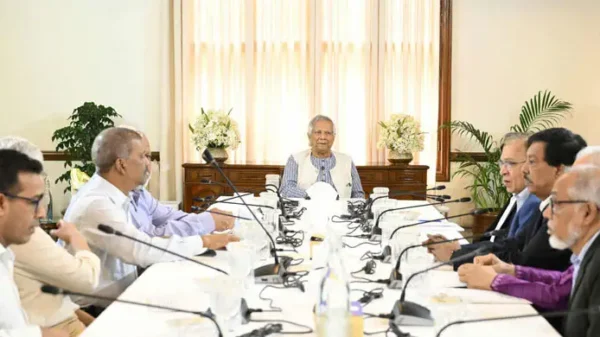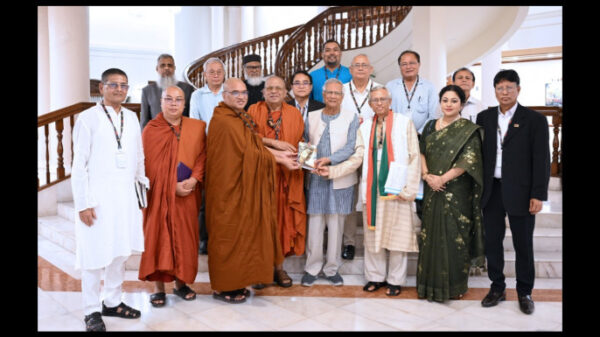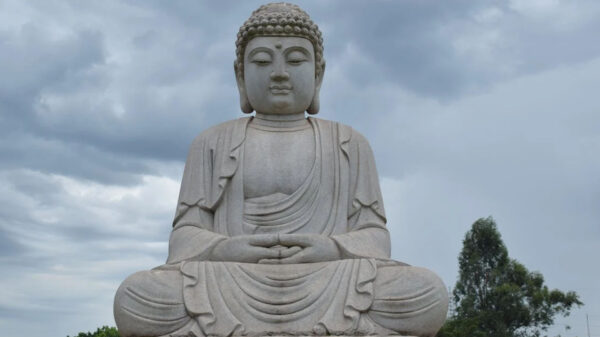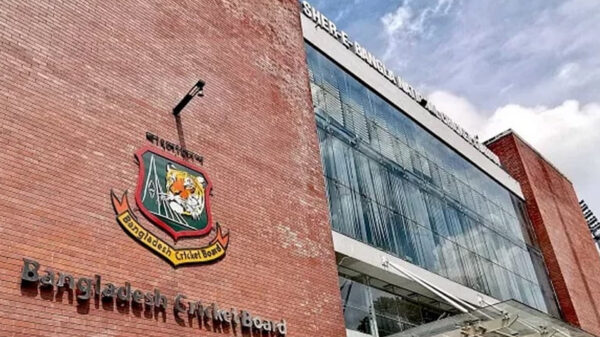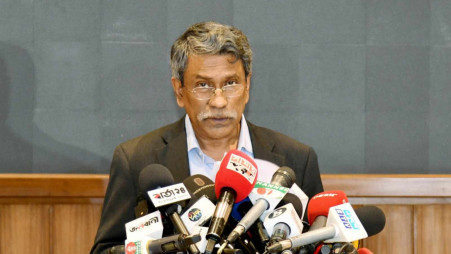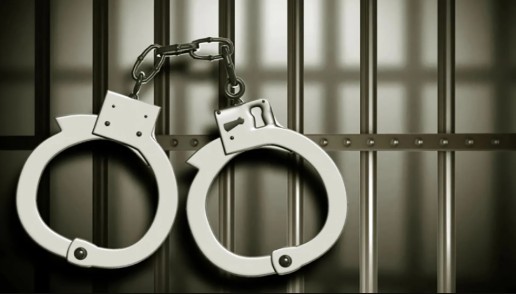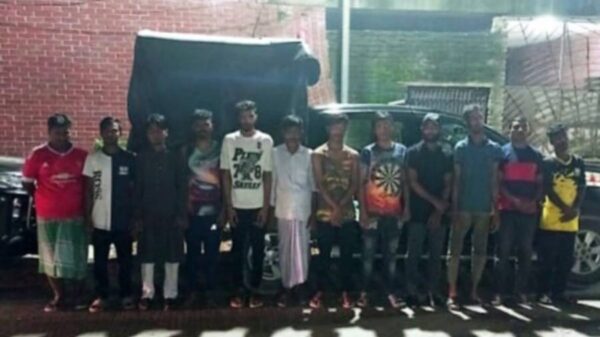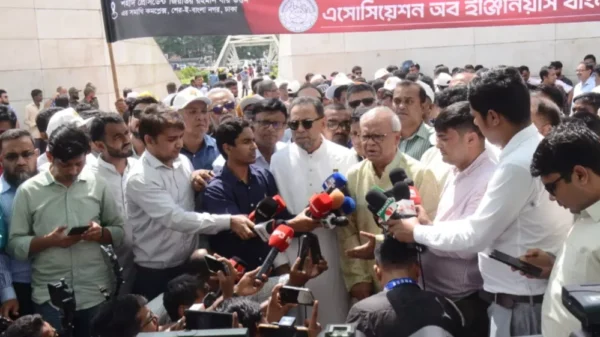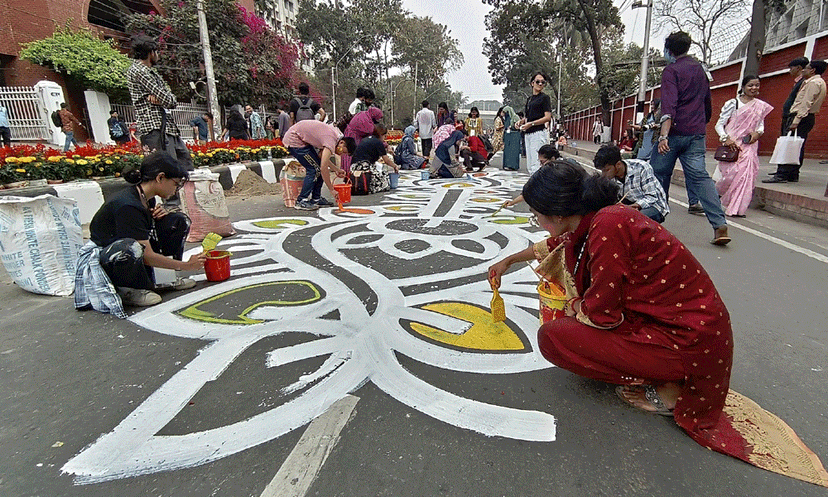Staff Reporter:
The people of Bangladesh are commemorating the gallant individuals of the Language Movement, whose heroic sacrifice in 1952 paved the path for the recognition of Bangla as a pivotal state language within the framework of Pakistan, predating the nation’s eventual independence in 1971.
This poignant tribute underscores the enduring significance of linguistic identity and the unwavering commitment to cultural autonomy, serving as a poignant reminder of the resilience and determination ingrained within the fabric of Bangladeshi society.
After the historic day (21 February 1952), the constituent assembly resolved, with the Muslim League’s support, to grant official status to Bangla on 7 May 1954. Bangla was adopted as an official language of Pakistan along with Urdu in the Article 214(1) when the first constitution of Pakistan was enacted on 29 February 1956.
Mohammad Ali Bogra (Pakistani Bengali politician) raised the language-related clauses of the constitution in the Parliament. According to the clauses, the Bangla language was given equal recognition as state language like Urdu. In Parliament and the Legislative Assembly, besides Urdu and English, there was an opportunity to speak in Bangla. The constitution also provided opportunities for higher education in Bangla.
Literally, there are no nations in the world, the movement of whose people’s struggle to save their mother tongue eventually turned into a national struggle for freedom. Bangladesh has emerged as the only nation on the world map which can lay claim to this credit.
In the height of civic unrest, Governor-General of Pakistan Muhammad Ali Jinnah arrived in Dhaka on 19 March 1948. On 21 March, at a civic reception at Racecourse Ground, he claimed that the language issue was designed by a “fifth column” to divide Pakistani Muslims. Jinnah further declared that “Urdu, and only Urdu” embodied the spirit of Muslim nations and would remain as the state language, labeling those who disagreed with his views as “Enemies of Pakistan”. That kind of speech by Jinnah added fuel to the flames and the people of East Pakistan rejected Jinnah’s claim.
Jinnah delivered a similar speech at Curzon Hall of the University of Dhaka on 24 March. At both meetings, Jinnah was interrupted by large segments of the audience. He later called a meeting of a state language committee of action, and overruled the contract that was signed by Khawaja Nazimuddin with the student leaders. Before Jinnah left Dhaka on 28 March, he delivered a speech on radio reasserting his “Urdu-only” policy.
The Urdu-Bengali controversy was reignited when Jinnah’s successor, governor-general Khawaja Nazimuddin, staunchly defended the “Urdu-only” policy in a speech on 27 January 1952.
During the time of turmoil on 21 February in 1952, at 9 o’clock in the morning, students began gathering on the University of Dhaka premises in defiance of Section 144. The university vice-chancellor and other officials were present as armed police surrounded the campus. By a quarter past eleven, students gathered at the university gate and attempted to break the police line. Police fired tear gas shells towards the gate to warn the students. A section of students ran into the Dhaka Medical College while others rallied towards the university premises cordoned by the police. The vice-chancellor asked police to stop firing and ordered the students to leave the area. However, the police arrested several students for violating section 144 as they attempted to leave. Enraged by the arrests, the students met around the East Bengal Legislative Assembly and blocked the legislators’ way, asking them to present their insistence at the assembly. When a group of students sought to storm into the building, police opened fire and killed many students, including Abdus Salam, Rafiq Uddin Ahmed, Shafiur Rahman, Abul Barkat and Abdul Jabbar. The Government reported that 29 people died on that day.
As the news of the killings spread, disorder erupted across the city. Shops, offices and public transport were shut down and a general strike began. At the assembly, six legislators including Manoranjan Dhar, Boshontokumar Das, Shamsuddin Ahmed and Dhirendranath Datta requested that Chief Minister Nurul Amin visit wounded students in the hospital and that the assembly be adjourned as a sign of mourning. This motion was supported by some treasury bench members including Maulana Abdur Rashid Tarkabagish, Shorfuddin Ahmed, Shamsuddin Ahmed Khondokar and Mosihuddin Ahmed. However, Nurul Amin refused the requests.
The martyrs of our language movement are indeed our national heroes whose solemn sacrifice has saved our mother tongue from marginalisation and negligence. Every year we celebrate 21st February as our Mother Language Day both at home and abroad and pay glowing tribute to the martyrs of language. By sacrificing their lives, the language heroes had shown us how to protest against illegal domination and achieve the rights. With the recognition of 21st February as the International Mother Language Day by the UNESCO, the status and position of Bangla as one of the international languages has been enhanced.



